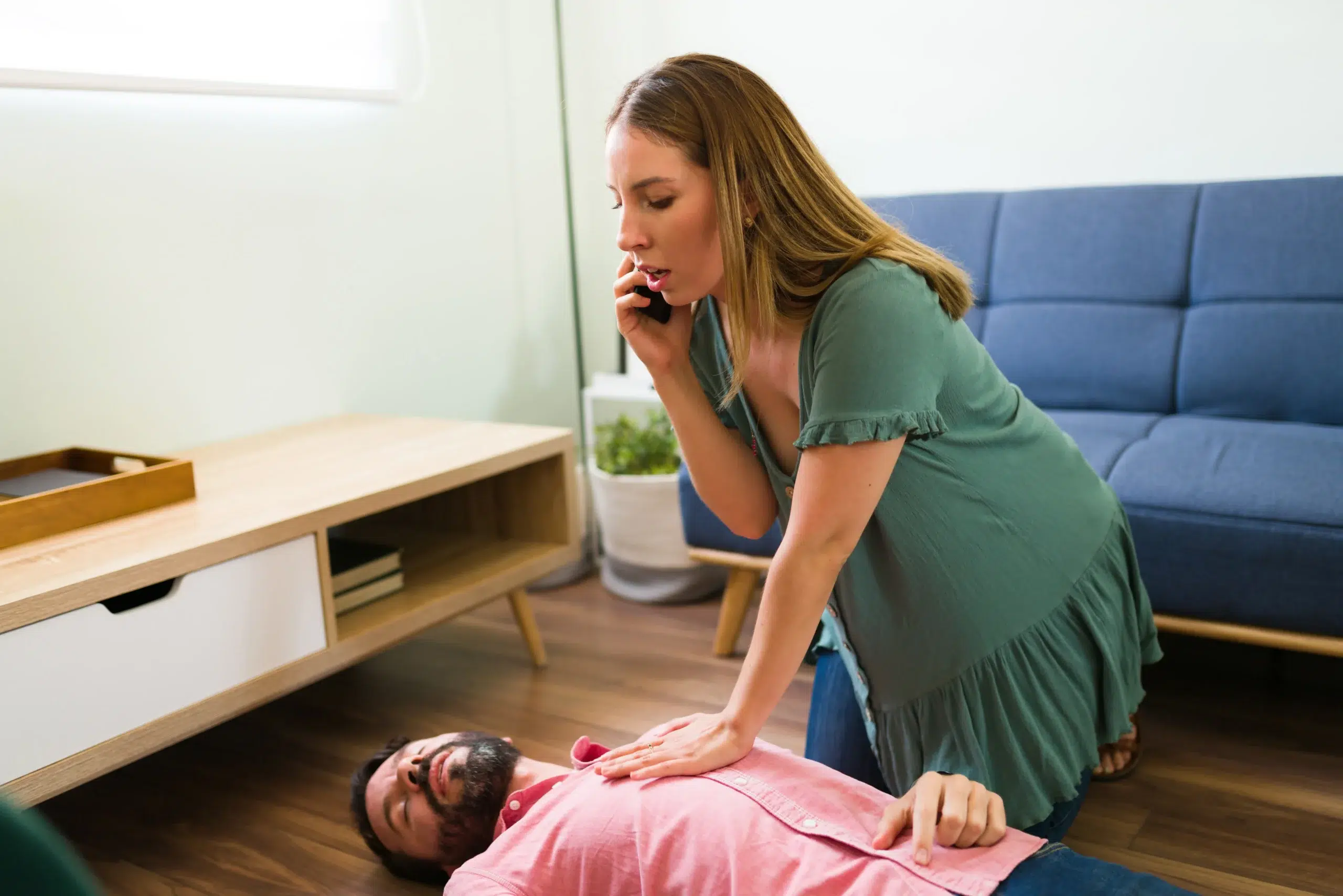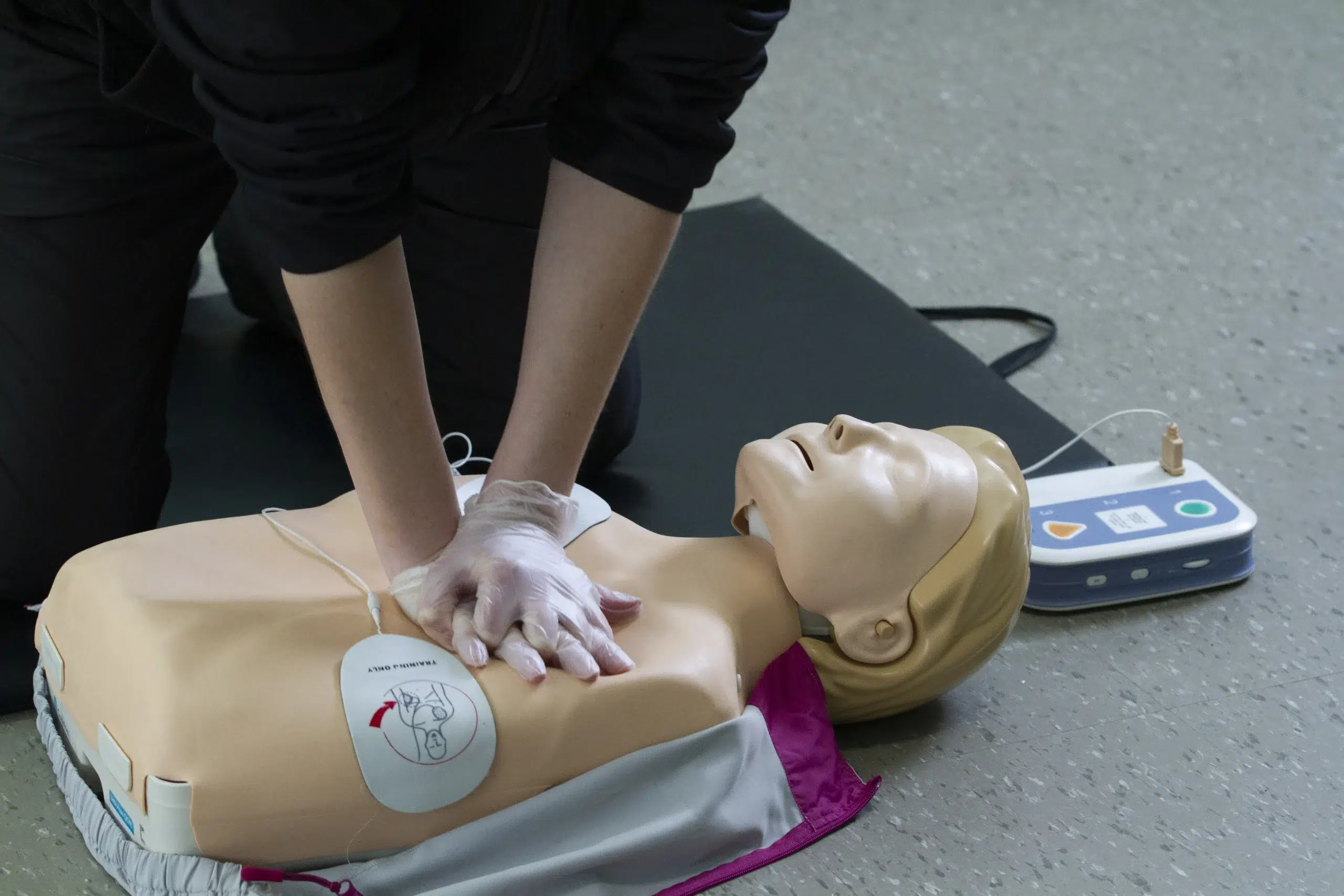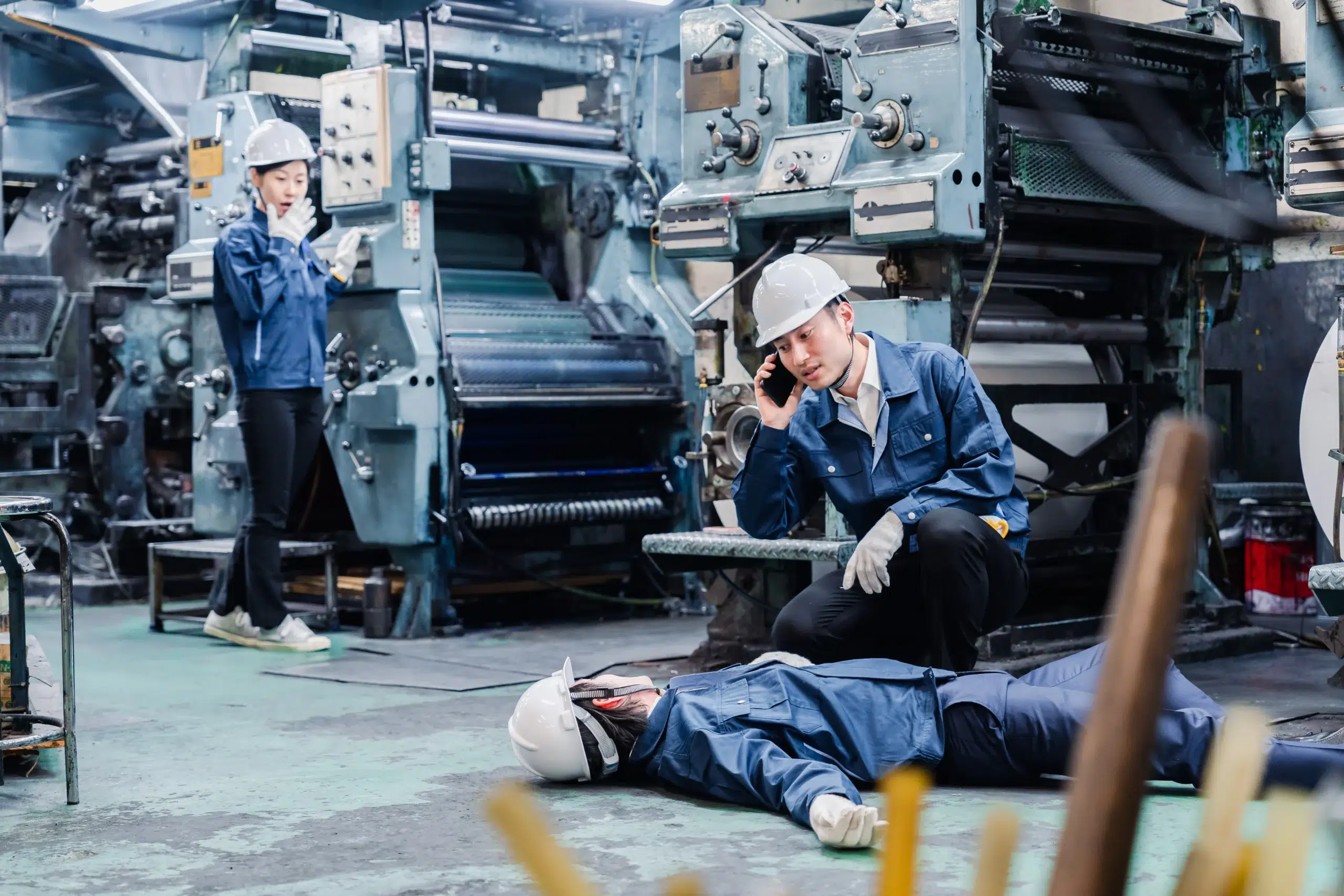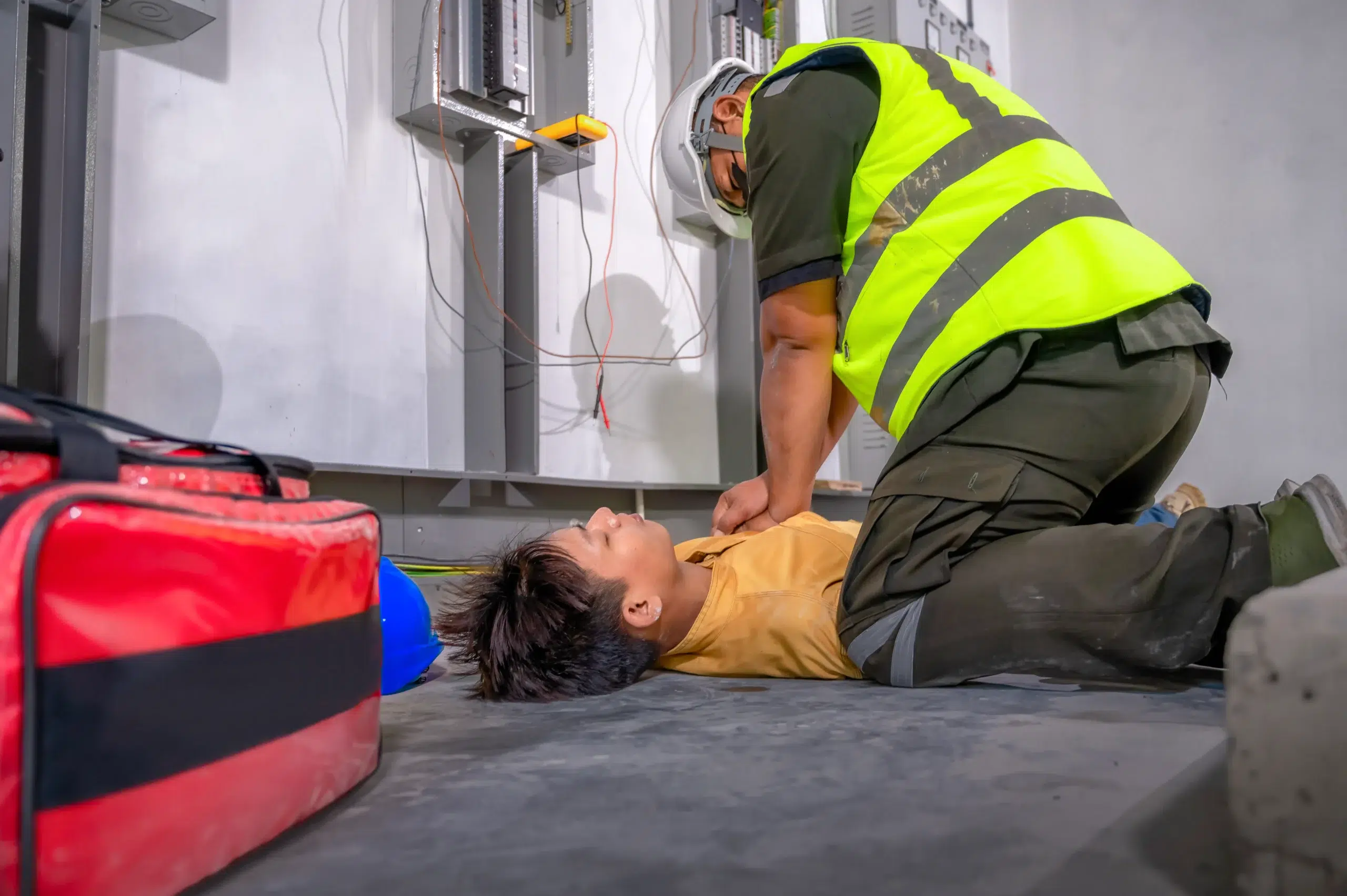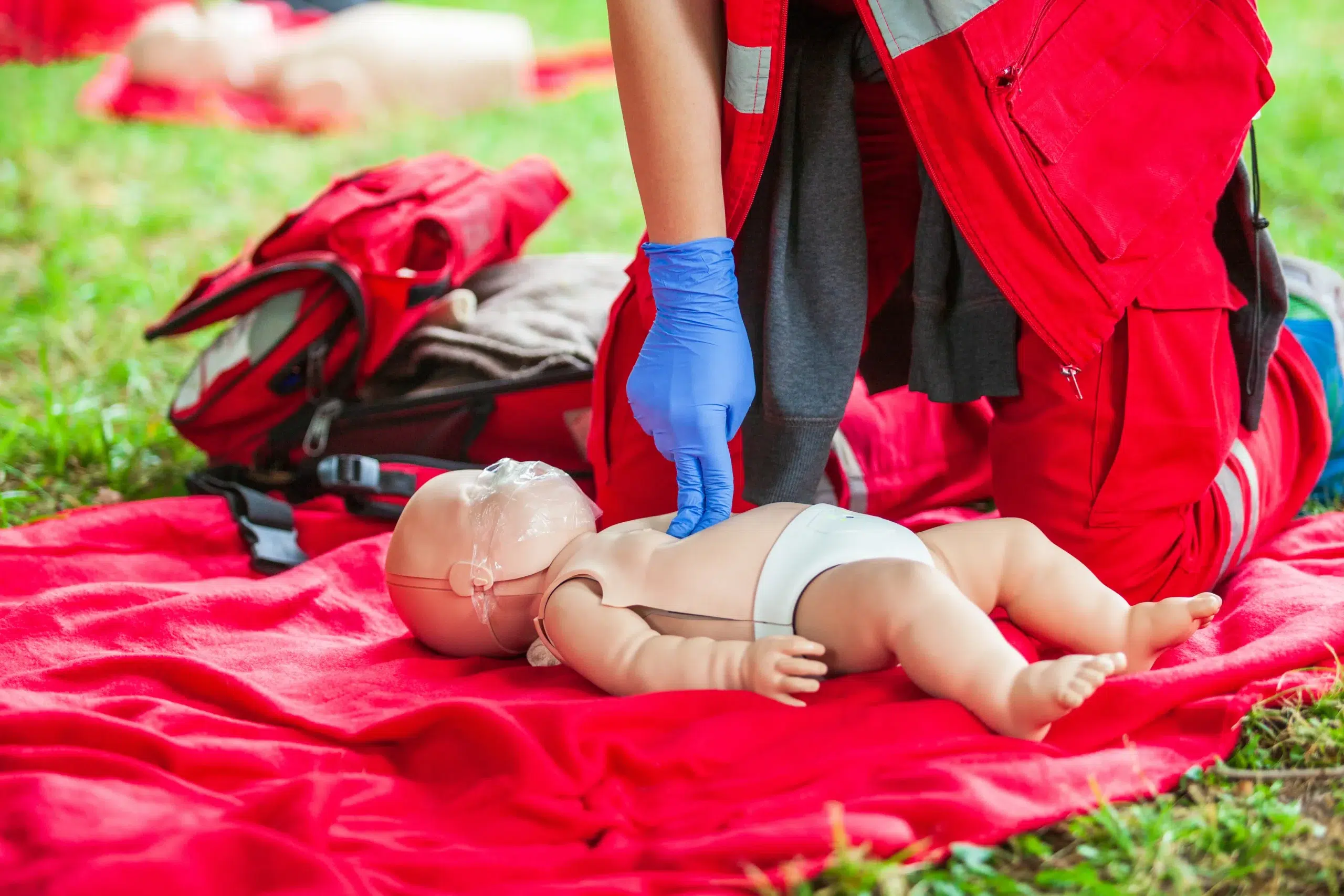For healthcare professionals in San Ramon, advanced cardiac life support training is more than just a certification—it’s a commitment to providing the highest quality of care during critical moments. This article explores the importance of ACLS and provides a practical guide to finding the right certification course in San Ramon. We’ll cover the core components of ACLS, discuss various course formats, and highlight reputable training providers offering advanced cardiac life support in San Ramon. Whether you’re looking for initial certification or renewal options, this guide will help you navigate the process and find the perfect course to meet your needs.
Key Takeaways
- ACLS builds upon basic life support skills: It provides advanced training for managing complex cardiac emergencies, giving healthcare professionals the expertise to handle critical situations. Choose a course format—blended learning or traditional—that suits your needs.
- AHA certification ensures quality and recognition: Select a training center affiliated with the American Heart Association for the most up-to-date and respected training. Consider woman-owned businesses like Danville CPR Classes or San Ramon CPR Classes.
- Finding the right provider matters: Evaluate factors like course format, location, cost, and instructor experience when making your decision. Contact providers directly to discuss your specific requirements and find the best fit for your schedule and learning style.
What is Advanced Cardiac Life Support (ACLS)?
Advanced Cardiac Life Support (ACLS) refers to a set of evidence-based protocols developed by the American Heart Association (AHA) for managing life-threatening cardiovascular emergencies. These emergencies include cardiac arrest, stroke, myocardial infarction (heart attack), and other serious heart rhythms. ACLS builds upon the foundation of Basic Life Support (BLS) skills, adding advanced interventions such as medication administration, electrocardiogram (ECG) interpretation, and team-based resuscitation techniques. The goal of ACLS is to optimize patient outcomes by providing a systematic and standardized approach to these critical situations.
Key ACLS Training Components
ACLS training emphasizes a structured, team-based approach to patient care. Participants learn to quickly assess a patient’s condition, identify the underlying cause of the emergency, and implement appropriate interventions. Key components include CPR, recognizing and managing cardiac rhythms, using advanced airway management techniques, administering essential medications, and promoting effective team dynamics during resuscitation efforts. Scenario-based simulations are a core part of ACLS training, allowing healthcare providers to practice these skills in a realistic, yet controlled environment. For more information on basic life support, check out our CPR training page.
Why Healthcare Professionals Need ACLS
ACLS certification equips healthcare professionals with the advanced knowledge and skills necessary to manage complex cardiac emergencies. It goes beyond basic life support, providing a deeper understanding of cardiovascular physiology and pharmacology. This specialized training is essential for professionals working in emergency rooms, intensive care units, and other critical care settings. ACLS certification is nationally recognized and demonstrates a commitment to providing high-quality patient care. It also empowers healthcare providers to confidently respond to critical situations, potentially improving patient outcomes and contributing to a stronger community response to cardiac events. Whether you’re a seasoned healthcare provider seeking recertification or new to advanced cardiac care, ACLS training offers valuable skills applicable to diverse healthcare settings. Learn more about our ACLS courses and how they can benefit your career.
Find ACLS Certification in San Ramon
Finding the right ACLS certification course in San Ramon is crucial for healthcare providers looking to stay current with their life-saving skills. Whether you’re initially certifying or renewing your credentials, several options meet your needs.
Initial Certification Courses
ACLS classes provide healthcare professionals with the knowledge and skills to manage complex cardiac emergencies. These courses cover various topics, including recognizing and treating cardiac arrest, managing strokes, and understanding the importance of teamwork during resuscitation. Initial ACLS certification courses typically involve classroom instruction, hands-on practice, and written exams. Danville CPR Classes offers ACLS certification designed to equip healthcare providers with the confidence to handle critical situations effectively.
Renewal Courses
Healthcare professionals seeking to renew their ACLS certification have several convenient options. Many providers offer the American Heart Association’s RQI program, a blended learning approach combining online learning with hands-on skills sessions. This flexible format lets professionals complete the cognitive portion at their own pace, followed by an in-person skills evaluation, ensuring they maintain proficiency in essential life-saving techniques.
American Heart Association (AHA) Certification
When selecting an ACLS course, choosing a provider offering American Heart Association (AHA) certification is essential. AHA certification is widely recognized and respected in healthcare, ensuring your training meets the highest standards. CPR Training San Ramon specializes in AHA-certified ACLS courses, serving San Ramon and the surrounding Contra Costa County. Look for providers affiliated with the American Heart Association to guarantee you receive high-quality training aligned with the latest evidence-based guidelines.
Top ACLS Training Providers in San Ramon
Finding the right ACLS training provider is crucial for healthcare professionals. Here’s a look at some of the leading options in San Ramon:
Danville CPR Classes
Danville CPR Classes, run by Safety Training Seminars, is a woman-owned American Heart Association (AHA) Training Center. They offer a comprehensive range of AHA courses, including BLS, ACLS, PALS, CPR, and First Aid. With a focus on high-quality instruction and a low-price guarantee, they provide convenient daily classes in Danville and surrounding areas, serving San Ramon, Dublin, and beyond. Explore their course offerings to learn more.
San Ramon CPR Classes
Also operated by Safety Training Seminars, San Ramon CPR Classes specializes in the AHA’s Resuscitation Quality Improvement (RQI) program. This approach offers medical professionals a streamlined path to BLS, ACLS, and PALS certification. As a woman-owned AHA Training Center, they maintain the same commitment to quality and affordability as their Danville location. Consider their RQI classes for a modern approach to resuscitation training. They also offer standard ACLS courses for those who prefer a traditional learning format.
Lifework Education
Lifework Education (formerly HeartShare Training) offers a variety of CPR certification courses, including BLS, ACLS, PALS, and NRP. Located in San Ramon, they provide flexible learning options with in-person, hybrid, and online formats to suit different schedules and preferences. Visit Lifework Education to explore their course catalog and schedules.
CPR Training Center
The CPR Training Center of Concord offers AHA ACLS courses designed for healthcare providers involved in patient resuscitation, both in and out of the hospital setting. While located in Concord, their proximity to San Ramon makes them an accessible option. Learn more about their ACLS training.
Course Formats and Duration
Finding the right ACLS course format is key to successfully completing your training. Thankfully, there are options to fit various learning styles and schedules. Let’s explore the most common formats for ACLS certification in San Ramon.
Blended Learning
Many providers, including Danville CPR Classes, offer the American Heart Association’s RQI program. This blended learning format combines online learning with hands-on skills sessions. The online portion allows you to learn core ACLS principles at your own pace, while the in-person skills session focuses on practicing essential techniques and demonstrating proficiency. This hybrid approach offers flexibility and personalized learning.
Online & In-Person Skills Testing
Some ACLS courses follow a slightly different structure. You might complete the cognitive portion online, then schedule an in-person skills testing session. This format, similar to blended learning, separates skills practice and testing. It works well for those who prefer to study independently but still value instructor guidance for practical application. CPR Training Center of Concord offers this type of training.
Typical Time Commitment
The time commitment for ACLS certification varies depending on the course format and provider. Blended learning courses often require less in-person time than traditional classroom courses, which may involve a full day or two of instruction. Regardless of format, ACLS classes play a crucial role in improving patient outcomes. Contacting a specific provider, like Danville CPR Classes, will give you the most accurate information on course duration and scheduling. They can help you find a course that fits your schedule.
Cost of ACLS Training
Knowing the cost of ACLS training is an important part of choosing the right course. Several factors influence pricing, so understanding average costs, available discounts, and guarantees can help you make an informed decision.
Average Course Pricing
ACLS (Advanced Cardiovascular Life Support) certification is a valuable asset for healthcare providers. In the San Ramon area, ACLS course costs generally reflect the specialized nature of this training. These ACLS certification classes are designed by the American Heart Association to equip healthcare professionals with the advanced skills needed to respond to cardiovascular emergencies. The price you pay covers expert instruction, course materials, and the certification exam.
Discounts & Group Rates
If you’re coordinating training for a group of healthcare workers or your entire team, look for group discounts on CPR training. Many training centers offer reduced rates for group registrations, making it more affordable to equip your team with these essential, life-saving skills. This can be a smart way for businesses and healthcare facilities to manage training costs while ensuring their staff are prepared for emergencies.
Danville CPR Classes’ Low Price Guarantee
Danville CPR Classes offers a low price guarantee on their CPR courses, including BLS renewal. This commitment to affordability makes high-quality training accessible. They believe cost shouldn’t be a barrier to gaining these vital skills, and their price guarantee reflects that commitment. For more information about their courses, including EMSA Child Care Health & Safety and RQI classes, contact them directly.
What to Expect in an ACLS Course
This section outlines the key components of an ACLS course, from the core curriculum to hands-on practice and the certification process. Understanding these elements will help you prepare for your training and know what to expect.
Core Curriculum & Skills
ACLS courses cover a comprehensive curriculum designed to equip healthcare providers with the knowledge and skills needed to manage cardiovascular emergencies effectively. You’ll learn essential algorithms for treating a range of life-threatening conditions, including cardiac arrest, stroke, and acute coronary syndromes. The curriculum emphasizes early recognition and intervention, focusing on teamwork, communication, and effective resuscitation techniques. These skills play a crucial role in improving patient outcomes during these critical situations. For more information on the specifics of ACLS training, explore these ACLS certification classes.
Hands-on Practice
ACLS training isn’t just about lectures and textbooks. A significant portion of the course involves hands-on practice and simulations. You’ll work with realistic mannequins and medical equipment to perform essential skills like CPR, airway management, and intravenous (IV) access. These simulations provide a safe environment to apply your knowledge and develop confidence in your abilities. This practical hands-on training bridges the gap between classroom learning and real-world application.
Assessment & Certification
To receive your ACLS certification, you’ll need to demonstrate proficiency in both the cognitive and psychomotor components of the course. This typically involves a written exam and practical skills tests. Successful completion earns you an AHA ACLS Provider Card, valid for two years. Maintaining your certification requires completing a renewal course within the specified timeframe. This ensures your skills remain sharp and up-to-date.
Instructor Qualifications
Choosing the right ACLS course is a big decision, and the instructor’s qualifications play a vital role in your learning experience. Understanding these qualifications helps you make an informed choice.
Required Certifications & Experience
ACLS instructors aren’t just CPR-certified; they’re highly trained healthcare providers with extensive experience in emergency cardiac care. They hold current ACLS certifications and often other advanced certifications like PALS (Pediatric Advanced Life Support) or BLS Instructor certifications. This deep understanding of life-saving techniques ensures they can effectively teach the complexities of ACLS. Many instructors also bring real-world experience from working in hospitals or emergency medical services. This practical experience adds another layer of depth to their teaching, allowing them to share real-life scenarios and best practices with students.
Ongoing Instructor Education
The medical field is constantly evolving, and ACLS guidelines are updated regularly to reflect the latest research and best practices. That’s why ongoing education is so important for ACLS instructors. They participate in continuing education courses and stay informed about any changes to ACLS protocols. This commitment to lifelong learning ensures they provide students with the most current and effective training. The American Heart Association (AHA) offers a range of resources and updates to support instructors in maintaining their skills and knowledge. This dedication to staying at the forefront of cardiovascular care is a hallmark of a truly qualified ACLS instructor.
Additional Cardiac Life Support Courses
Beyond ACLS certification, several other valuable courses can enhance your skills and broaden your knowledge in cardiac and emergency care. These certifications are valuable assets for any healthcare professional.
Basic Life Support (BLS)
Basic Life Support (BLS) provides foundational lifesaving skills, including CPR, AED use, and relief of choking. It’s a cornerstone for any healthcare provider and often a prerequisite for advanced courses like ACLS. A strong BLS foundation ensures you can effectively respond to basic life-threatening emergencies. This training covers essential techniques for high-quality CPR and effective ventilation.
Pediatric Advanced Life Support (PALS)
Pediatric Advanced Life Support (PALS) focuses on the specialized needs of infants and children in emergency situations. This course builds upon BLS skills and delves into the assessment and management of pediatric respiratory and cardiac emergencies. PALS training is essential for healthcare providers working with young patients. It equips you with the knowledge and skills to provide effective care during critical pediatric emergencies.
First Aid & CPR
While ACLS and other advanced certifications are crucial for specialized care, comprehensive First Aid and CPR training remains essential for all healthcare professionals. These skills equip you to handle a wide range of emergencies, from minor injuries to life-threatening situations. Combining CPR and First Aid training offers practical knowledge and techniques to confidently respond to various medical emergencies, ensuring you’re prepared for any situation.
Choose the Right ACLS Provider
Finding the right ACLS provider is crucial for a positive and effective learning experience. With several training centers in the San Ramon area, consider a few key factors before making your decision.
Factors to Consider
Look for an official American Heart Association (AHA) Training Center. This guarantees the curriculum meets the AHA’s standards and that you receive a valid AHA certification card upon completion. Danville CPR Classes, for example, is a woman-owned AHA Training Center offering high-quality courses. Does the training center offer the format that best suits your learning style and schedule? Do you prefer blended learning that combines online coursework with in-person skills sessions, or a traditional classroom setting? Many providers, including San Ramon CPR Courses, offer the AHA’s RQI program—a popular blended learning option. Location and course availability are also important. Choose a provider with convenient locations and flexible scheduling. CPR Training Center serves San Ramon and the surrounding Contra Costa County area. Finally, consider the total cost, including fees for study materials or certification cards. Danville CPR Classes offers a low price guarantee.
Renewal Requirements & Continuing Education
ACLS certification typically requires renewal every two years. This involves completing a refresher course to maintain your skills and knowledge. Check with your provider about their recertification process and available courses. The RQI program, offered by many providers, streamlines renewal with its flexible online platform. This allows healthcare professionals to complete RQI classes at their own pace. Staying current with advancements in cardiac life support is essential for providing excellent patient care. Consider providers who offer continuing education beyond the basic recertification requirements. This shows a commitment to ongoing learning. Contact Danville CPR Classes for personalized guidance.
Related Articles
- ACLS Courses in Dublin: A Complete Guide – Danville CPR Classes
- ACLS Courses in Danville: A Certification Guide
- BLS Classes in San Ramon: The Complete Guide – Danville CPR Classes
- First-Aid Training in San Ramon: A Complete Guide – Danville CPR Classes
- RQI in San Ramon: Your Guide to CPR Training – Danville CPR Classes
Frequently Asked Questions
What’s the difference between BLS and ACLS? BLS, or Basic Life Support, focuses on immediate life-saving techniques like CPR and using an AED. ACLS (Advanced Cardiovascular Life Support) builds on those skills, adding advanced procedures like medication administration, ECG interpretation, and team-based resuscitation strategies for managing complex cardiac emergencies. Think of BLS as the foundation, while ACLS provides the specialized tools for more critical situations.
How often do I need to renew my ACLS certification? ACLS certification is typically valid for two years. To stay current and maintain your credentials, you’ll need to complete a renewal course before your current certification expires. Many providers offer streamlined renewal options, like the RQI program, which combines online learning with a shorter in-person skills assessment.
What if I don’t work in a hospital? Do I still need ACLS? While ACLS is often associated with hospital settings like emergency rooms and ICUs, it’s a valuable asset for any healthcare professional who might encounter a cardiovascular emergency. Whether you work in a clinic, doctor’s office, or other healthcare setting, having ACLS training can make a significant difference in your ability to respond effectively and potentially save a life.
How can I find an ACLS course near me? Several organizations offer ACLS courses, including the American Heart Association Training Centers, hospitals, and independent training providers. A quick online search for “ACLS courses near me” can help you find local options. You can also check with your employer or professional organizations for recommendations. When choosing a provider, make sure they offer AHA-certified courses to ensure you receive high-quality training that meets national standards.
What should I look for in a quality ACLS training provider? Look for a provider that is an official American Heart Association Training Center. This ensures the curriculum aligns with the latest AHA guidelines. Check if the provider offers various course formats, like blended learning or traditional classroom instruction, to suit your learning style. Consider the instructor’s qualifications and experience, as well as the provider’s reputation and student reviews. Finally, compare costs and look for any available discounts or guarantees.


